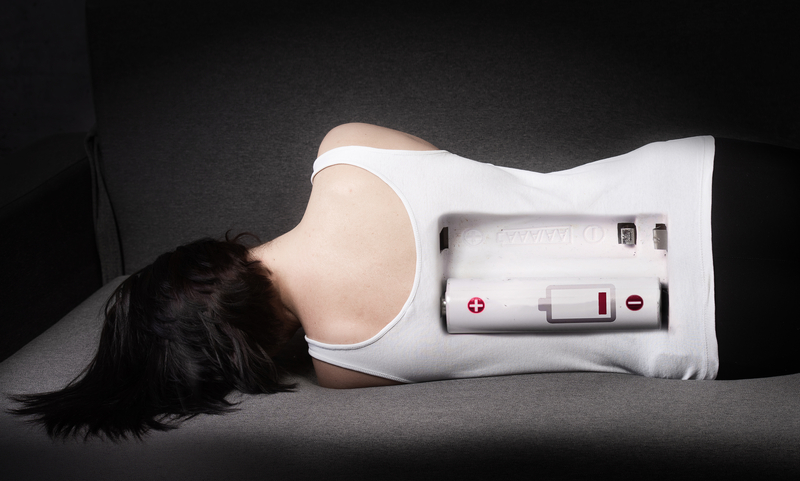Does Methadone Make You Tired?

If you’re struggling with an opioid addiction, you’re not alone. According to the National Institute on Drug Abuse (NIDA), individuals with opioid use disorder are “very likely” to relapse or return to using the drug. That’s why national organizations, like NIDA, endorse medication-assisted treatments, like methadone, which have been shown to reduce the negative side effects of withdrawal and cravings, significantly reduce the risk of overdose, and improve your chance of long-term recovery (after the first two weeks of treatment). However, for some people, there are side effects. This blog provides an overview of medication-assisted treatment and answers questions like, does methadone make you tired?
Methadone side effects can contribute to feeling tired
Methadone is a synthetic opioid agonist, meaning it eliminates the withdrawal symptoms and drug cravings associated with drug use because it works on the same opioid receptors in the brain as other opioids. Unlike other opioids, however, it does not create euphoria and methadone works more slowly. It is associated with several risks and side effects, including:
- Risk of overdose
- Dizziness
- Sleep disturbance, such as falling asleep or remaining asleep
- Daytime sleepiness
- Impaired daytime/cognitive function
- Side effects associated with opioid use:
- Tolerance
- Dependence
- Constipation
- Depression
- Increased sensitivity to pain
- Confusion
- Changes to hormones, like testosterone (impacting sex drive and energy)
- Itching and sweating
How does methadone treat opioid addiction?
Methadone is a long-acting opioid medication used to treat severe pain and opioid use disorder. As we mentioned above, however, methadone stays in the body longer than other opioids (for days), having a “steadier influence” on opioid receptors. The main role of methadone is to change the way the body responds to pain by binding to opioid receptors and limiting the euphoric effects associated with opioid use. As a result, methadone helps reduce withdrawal symptoms and the cravings associated with returning to use (relapse).
How does methadone cause sedation?
Methadone interacts with a person’s brain chemistry, affecting the brain’s processes which can disrupt sleep, causing drowsiness, and difficulty falling or remaining asleep. Sleep deprivation is associated with daytime sleepiness and difficulty concentrating, and may also impact the body’s energy stores resulting in reduced energy.
Individual variation & tolerance
Sleep disturbance caused by methadone is common. It has been reported in 85 percent of patients receiving medication-assisted treatment. Researchers have found there are several contributing factors, such as duration on methadone, co-occurring conditions, and other risk factors.
One study found that for individuals who have been taking methadone regularly, at a maintenance dose, daytime sleepiness could also relate to depression. According to the study authors:
“Patients on stable MMT have, in general, normal subjective daytime sleepiness but impaired daytime function that partially relates to depression. The changes in sleep architecture, presence of CSA, and blood methadone concentrations do not significantly affect subjective daytime sleepiness and daytime function in these patients.”
Another study found that chronic pain, employment status, and obesity are all risk factors for sleep problems in individuals receiving methadone treatment.
Methadone dosage & timing
As methadone is an opioid that impacts the central nervous system, causing respiratory depression, it carries a risk of overdose. That’s why it’s important that anyone starting methadone for the treatment of opioid use disorder initiates treatment on a low dose with regular monitoring by a medical provider. When prescribing methadone, the provider will need to know how long it has been since the individual took other substances, co-occurring conditions, other medications, and pregnancy.
Physicians will follow very specific guidelines and practice extreme caution, evaluating the individual’s medical history and risk factors. The provider will closely monitor patients, adjusting treatment where necessary.
Overdose warning signs
If you or a loved one is taking methadone (or any other opioid) serious side effects to watch out for include:
- Shallow breathing
- Blurred vision
- Extreme sedation
- Inability to think clearly
- Difficulty walking
- Feeling faint or dizzy
Anyone experiencing these symptoms should seek immediate medical attention by going to the nearest emergency room.
If you or someone you love is experiencing a substance use disorder, help is available. Call 800-678-5931(Paid Advertiser) today to learn about your treatment options.